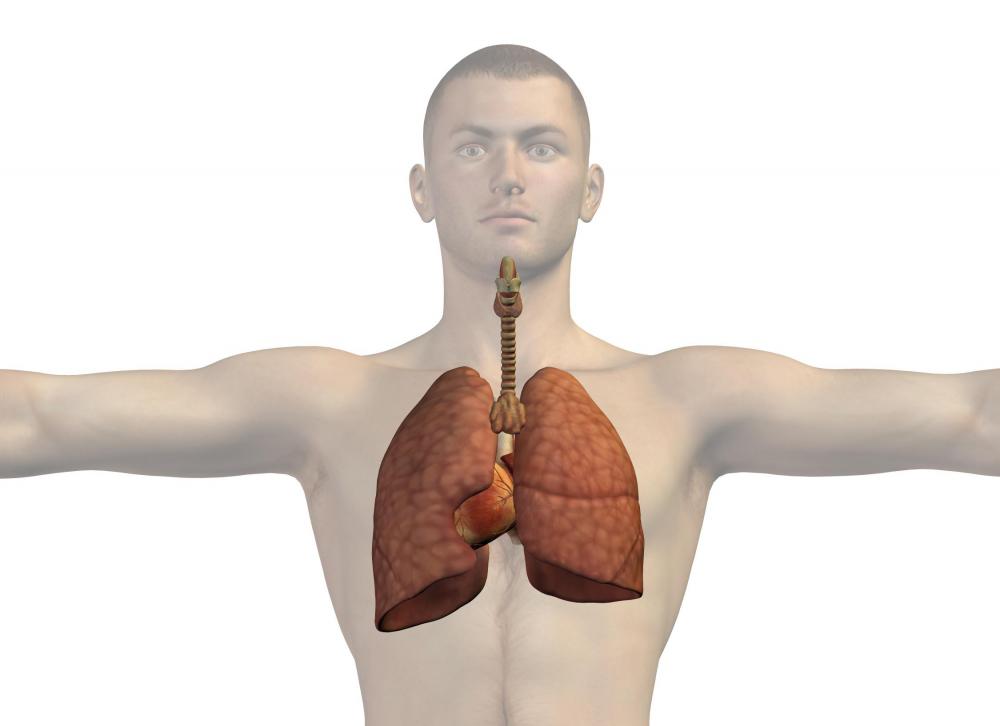At TheHealthBoard, we're committed to delivering accurate, trustworthy information. Our expert-authored content is rigorously fact-checked and sourced from credible authorities. Discover how we uphold the highest standards in providing you with reliable knowledge.
What are Antibodies?
Antibodies are proteins that exist in bodily fluids, and are used both as a detection and response device by the immune system. Antibodies are made in plasma cells, which are a type of white blood cell, and are an integral part to the body’s natural defense system. In mammals, there are five primary types of antibodies, each with similar basic structures. The tips of the proteins can be incredibly different, however, and it is this part that interacts with the contaminant itself, allowing for millions of unique antibodies to exist.
Generally, these proteins serve as a kind of quick tagging device, which then alert other defensive cells to attack whatever they have tagged. They do this by binding with the invasive bit, known as the antigen. Each antigen has a part of it that is a very specific shape, known as the epitope. Each antibody is able to fit only one epitope, because of its specifically-shaped tip, making a sort of lock and key connection. Once this connection, known as an induced fit, has occurred, the antigen becomes immediately recognizable to defensive cells as an enemy.

After being tagged by antibodies, antigens generally come under attack by other cells. These include cells like the killer T cells, which can go after infected cells, such as those which have been compromised by a virus. This combination effort by antibodies and killer T cells allows the body to quickly respond to a wide range of antigens, helping to keep the body safe and free of infection.

Another type of responder cell, known as a B cell, actually has antibodies on it that assist it in its daily work. The B cell, because of its component, is able to immediately detect an antigen by binding to it. It then absorbs both the antigen and the antibody, and processes them into peptides, which attract a helper T cell, which trigger a reaction in the B cell. This reaction causes the B cell to split and divide, creating millions of copies of an antigen specifically targeting the protein it absorbed, creating an army of focused defensive cells.

Antibodies are also able to interact directly with pathogens in order to stop the spread of some viruses and illnesses, rather than simply tagging them. They do this by binding not just to any point on the antigen, but to the point where it connects to other cells to infect them. In this way, the protein effectively neutralizes the threat that a virus will spread throughout a system, allowing it to be much more easily taken care of.

There are five main classes of antibodies found in mammals: IgA, IgD, IgE, IgG, and IgM. There are two types of IgA antibodies, and they are found primarily in areas with mucous membranes, like the respiratory tract and gut, as well as in breast milk, saliva, and tears. IgD is generally just found as the receptor on B cells before they’ve targeted a specific antigen, while IgM is found on B cells and targets pathogens. IgE is a class of antibodies that attacks allergens, and provokes a histamine response. IgG has four main types, and is responsible for most of the immune response against invasive pathogens.
AS FEATURED ON:
AS FEATURED ON:


















Discussion Comments
How big is an antibody compared to an antigen?
You said that antibodies can only attach to one antigen but I think that each antibody can use its hinge region to stretch out and attach to two antigens.
What are anti microsomal antibodies and what is the effect of having a very high number of those in a person's body?
Antibodies are ideal probes in cell research because of their ability to bind to specific molecules. Scientists use antibodies to help isolate and identify molecules of interest in cells, such as protein. A unique antibody can be made targeting the specific molecule one is trying to locate in the cell. The antibody with an attached fluorescent molecule is then injected into the cell. The antibodies will attach themselves to the molecules that are targeted and are easily located under a light microscope.
There are two types of antibody response: monoclonal and polyclonal antibodies. The former is produced by a single B lymphocyte clone whereas the latter occurs when each lymphocyte (white blood cells) is activated to proliferate and differentiate into plasma cells. The type of antibody response differs because antigens are very complex and present numerous epitopes that are recognized by a large number of lymphocytes.
Did you know that are diseases that can affect antibodies? These diseases, called immunodeficiency disorders, include hypogammaglobulinemia, which causes respiratory and gastrointestinal infections, and agammaglobulinemia, which results from frequent severe infections early in life. Both these disorders affect the B cells. Acquired immune deficiency is another common immunodeficiency disorder that's often caused by the HIV virus.
It's important to remember that your body does have its own antibodies, and many of us don't give them enough of a workout. Not only do people take what are probably way too many antibiotic medicines, we also tend to use many forms of antibacterial wash and other things to keep germs as far away from us as possible.
Unfortunately, our antibodies work in a really similar way to our muscles; trying to keep them out of danger won't strengthen them or keep them healthy nearly so much as taking them out for a run or a lifting session on a regular basis.
Post your comments